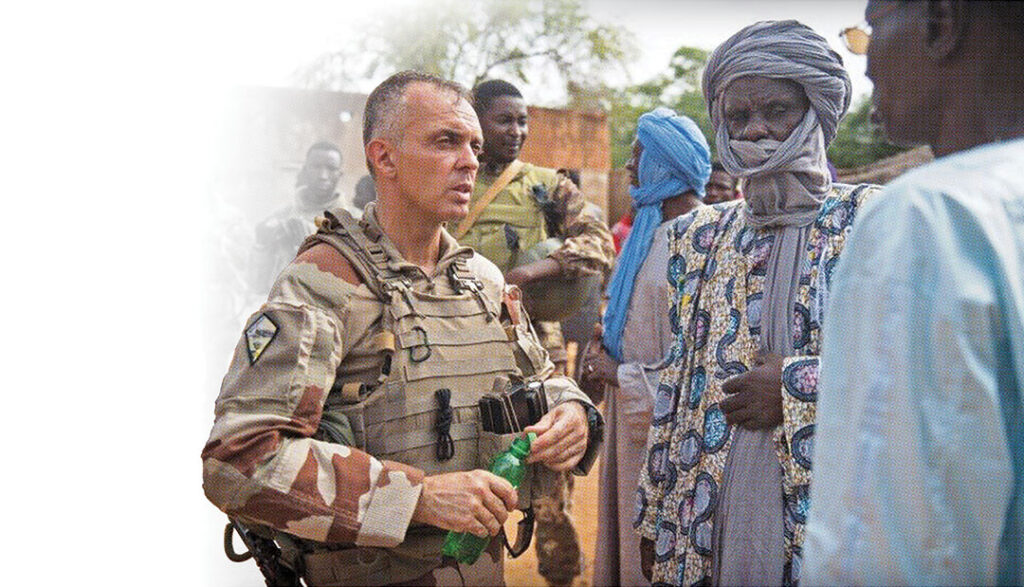ADF STAFF
On an August day in the Malian village of Gossi, a group gathered to mark the opening of a new building for the local women’s association. The humble clay structure was a rare bright spot for the desert town of about 8,000 that has been beset by years of violence.
“After the dark hours lived through by the people of Gossi, we congratulate these women for their approach,” said Lt. Yacouba of the Malian National Guard during the ceremony.
The women’s association, which has about 250 members, had been a pillar of stability in the town. Before the Malian crisis of 2012, the association operated a windmill to grind cottonseed and produce cooking oil. The sale of the oil supported numerous families. But repeated extremist attacks damaged the mill and the women’s association building. Even more tragically, many of the women lost their husbands in the conflict.
When the association reached out to the French and Malian Armed Forces (FAMa) for help rebuilding the association and a child-care center to allow the women to work during the day, civil-military teams eagerly agreed.
“Before the FAMa and Barkhane were here, everyone was so afraid that they stayed inside their homes,” said Madame Dicko, president of the women’s association. “Most of the women in Gossi have become widows, and many children are orphans. But today we feel secure because they are here in front of us. We can leave, go to the market and even walk around at night. Before, that was impossible.”
As extremist attacks proliferate in this troubled region, French and Malian forces are working on a strategy to win back the support of the local population that has been so badly battered by years of unrest. In 2019, Barkhane and Malian forces led more than 75 civil-military projects, including drilling water wells, offering support to pastoralists and constructing schoolhouses. Nearly half of these projects were in the historic Liptako-Gourma region, which includes Gossi and is near the border with Niger and Burkina Faso.
 The hope is that this civil-military strategy will do as much to improve lives and lead to a lasting peace as the kinetic military efforts.
The hope is that this civil-military strategy will do as much to improve lives and lead to a lasting peace as the kinetic military efforts.
“You are participating in the reconstruction of the country; make sure that Malian solidarity is never broken,” Yacouba told the crowd gathered in Gossi. “We give you the keys to these buildings so you can make this project flourish. We are together.”
Confidence Shaken
The Malian government nearly collapsed in 2012 after a rebellion in the north, a coup attempt, and the occupation of 60% of the country by a coalition of ethnic Tuaregs and violent extremists.
Faith in the security sector, already shaky, eroded to a new low. Accusations of human rights abuses, corruption and nepotism tarnished the image of security professionals, including the FAMa, gendarmes, national guard and police.
During the crisis, stories of underequipped Soldiers abandoning their posts and complaints that units on patrol were not given fuel for their trucks made things worse.
“When I see the level of my army, I am afraid,” said Malian Minister of Defense Ibrahima Dahirou Dembélé in a speech to parliament. “I want to reach the level of other armies, and it’s time for Mali to take charge.”
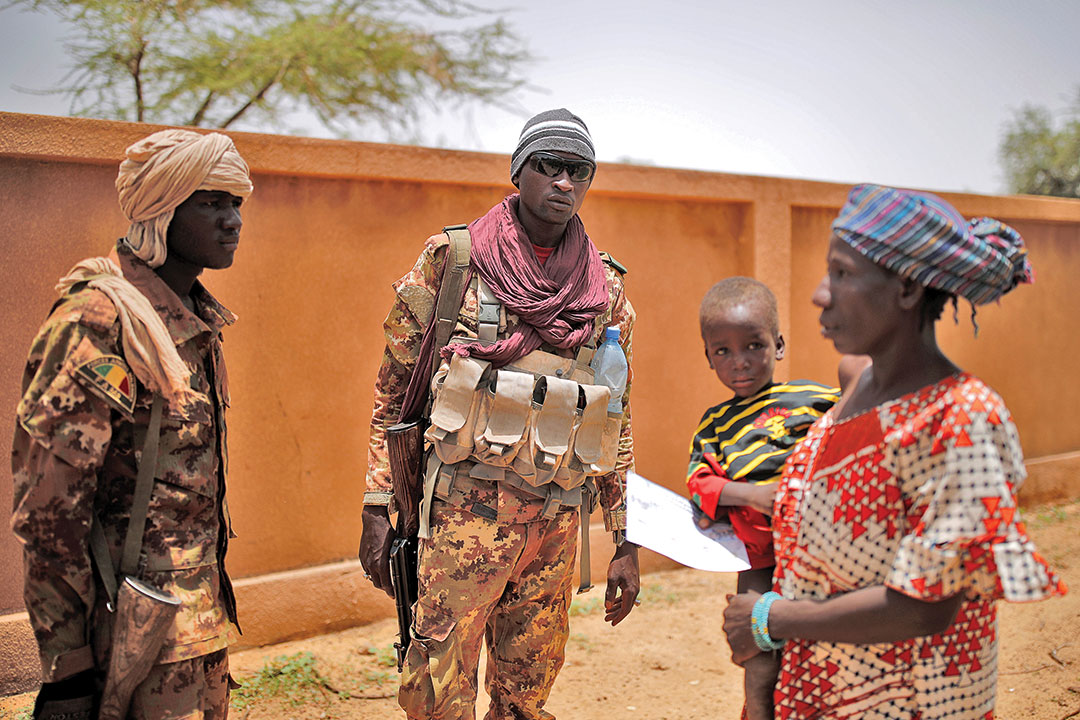
Another complicating factor was the fact that the majority of the uprising occurred in the north of the country, and the FAMa was mostly made up of Soldiers from the south. In a study of efforts to reform FAMa, researcher Marc-Andre Boisvert said the military needed to learn the “language, culture and the daily realities” of the people it was sworn to protect.
“The FAMa remains a corps estranged from their own territory,” Boisvert wrote. “Sent from the south, the militaries do not know the local populations in the north.”
To protect the public, the military first needed to earn their trust.
CIMIC
Civil-military cooperation (CIMIC) projects are part of a broad category that can include infrastructure work, humanitarian aid, community dialogue and more. The best CIMIC projects have a “3-D” impact, which means they help support defense, development and diplomacy.
In addition to helping improve the lives of people in areas emerging from conflict, they can demonstrate “peace dividends” by showing the community the economic advantages of stability. The projects improve the reputation of the armed forces and can open channels of communication between Soldiers and civilians. CIMIC projects also weaken support for insurgencies in situations where fighters receive help or are enmeshed in the community.
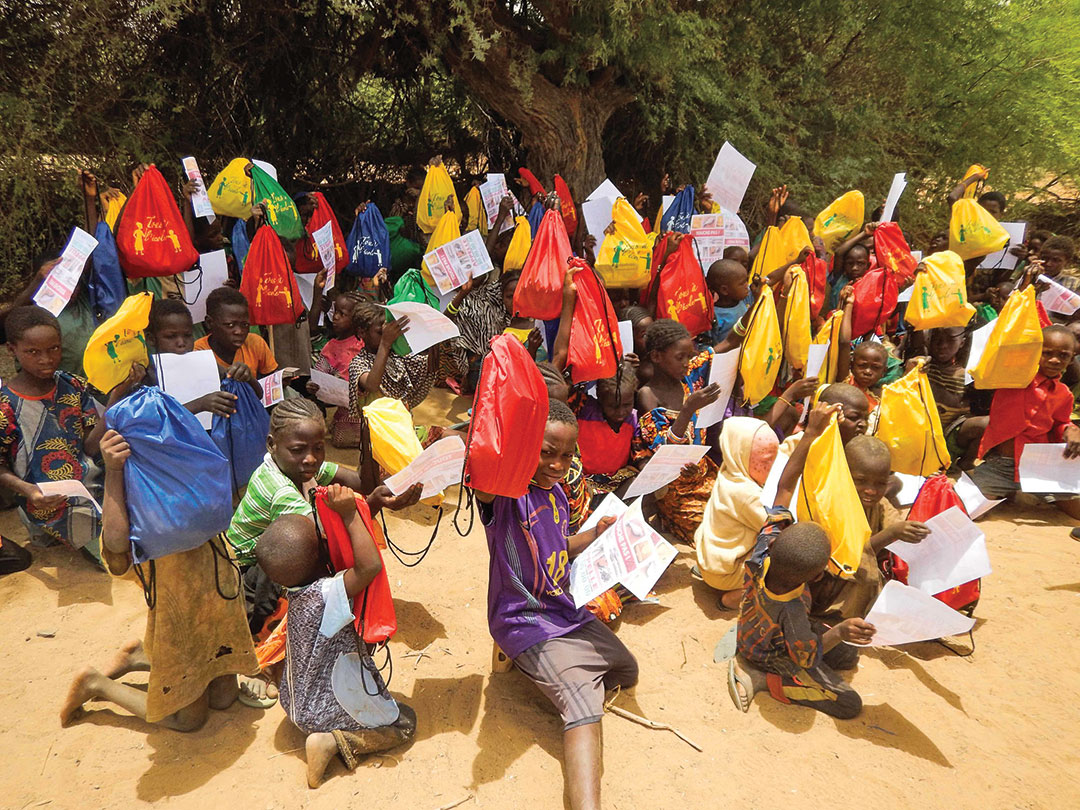
The NATO CIMIC Centre of Excellence urges practitioners to ask questions before undertaking a project. These include:
Does this project do any harm? Some projects can result in competition, jealousy or biases within a community.
How will this project affect other communities? Some projects can damage relations between communities by unfairly giving advantage to one at the expense of another.
Who will benefit most from the project? Some projects only benefit certain groups, such as men, women, children or the elderly. Others may benefit only a certain social class, religion or ethnic group.
Are the resources safe? Is the project at risk of being stolen or destroyed by bad actors?
Is anyone else in the region doing something similar? Projects that compete with or displace local businesses can have unintended negative effects.
An Image on the Mend
In 2019, France’s Operation Barkhane opened a base in Gossi. It was planned as a “temporary advance base” to launch missions against extremists in the volatile Liptako-Gourma region. The tri-border region has become one of the deadliest in the world. In 2019, Mali, Burkina Faso and Niger suffered 4,779 deaths as a result of extremist violence or armed conflict. The majority occurred in the tri-border region.
Malian and French forces knew that to reestablish security they needed to prioritize CIMIC.
“The goal is to try to return to peace, not through combat, but by social and structural projects,” said Lt. Emilie, a CIMIC specialist with the French Armed Forces. “What’s important to understand is that it’s together that we can achieve it.”
Gossi relies heavily on a 14-kilometer-long lake that is vital for fishing, grazing and irrigation. The U.N. peacekeeping mission in Mali built a dike to keep the lake from drying up. Barkhane and FAMa teams have bought and paid to operate a small boat to take students across the lake to where they attend school. The CIMIC team also has organized “days of cleanliness” in which Soldiers and civilians pick up litter and clean streets. Finally, the CIMIC team has brought a well back into service and built a protective wall around an elementary school.
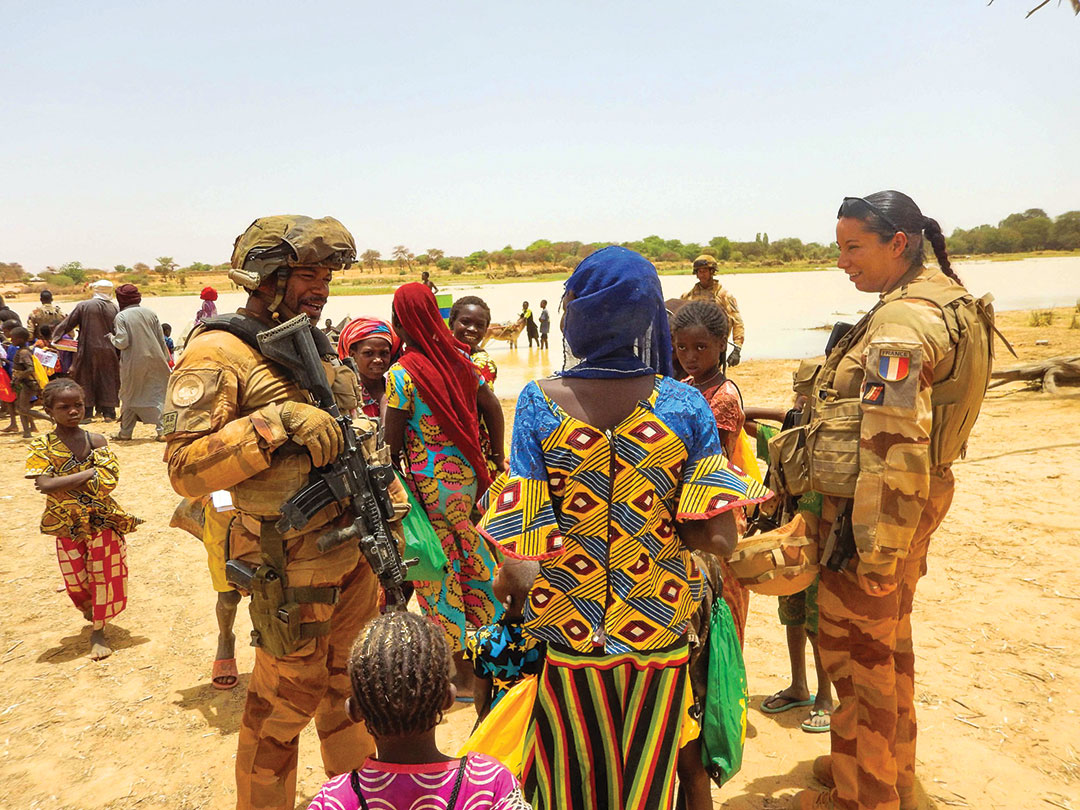
“Since our arrival, we placed an emphasis on water, education and employment,” said Adjutant Pierre, CIMIC lead for Operation Barkhane in Gossi. “Idleness is a fertile terrain that leads to banditry.”
So far, it is impossible to judge the impact these efforts are having, but recent data shows public support for the Malian Army is on the rise. A survey by the German foundation Friedrich-Ebert-Stiftung found that 69% of Malians said they had faith in the FAMa to provide security. This was the highest favorability rating for any security organization in the country.
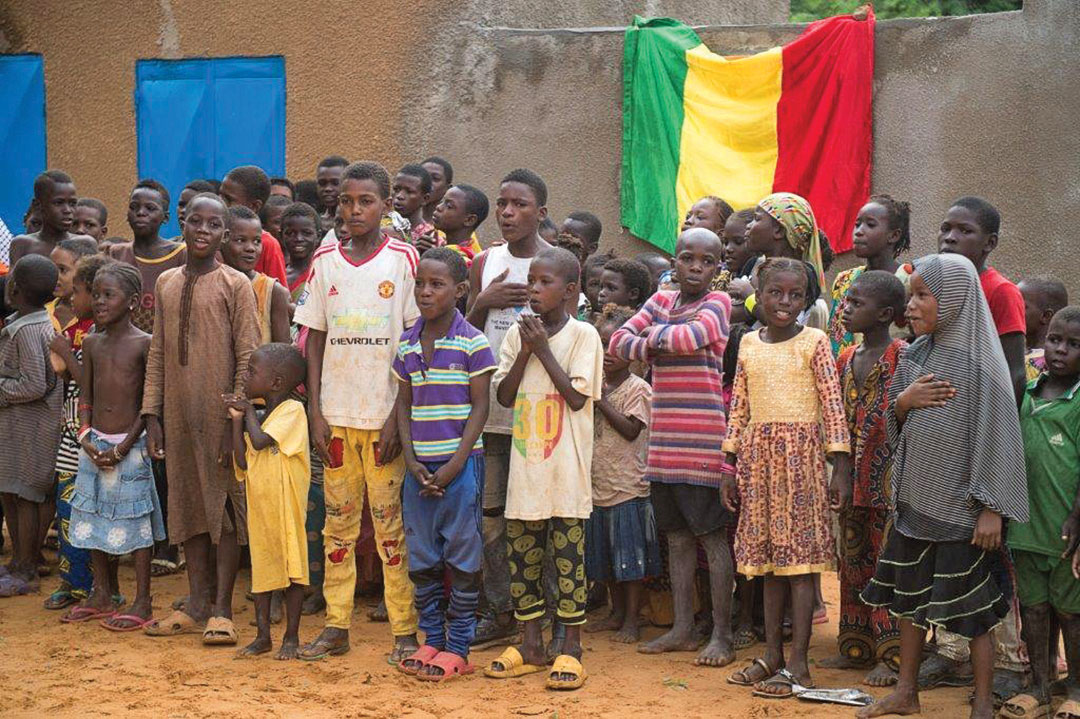
In February 2020, Malian Prime Minister Dr. Boubou Cissé spent several days touring cities in the north of the country and announced plans to recruit 10,000 new service members to the FAMa.
“From this trip, I’ll carry with me the determination and resilience of the population faced with a crisis,” he said. “Despite these daily difficulties, they remain hopeful in Mali and the authorities. In return, we are going to show them that the authorities are by their sides.”

